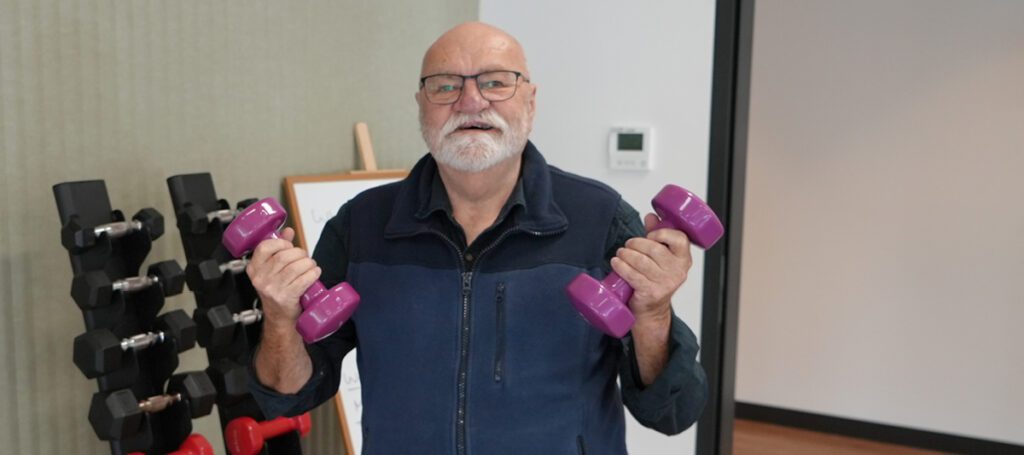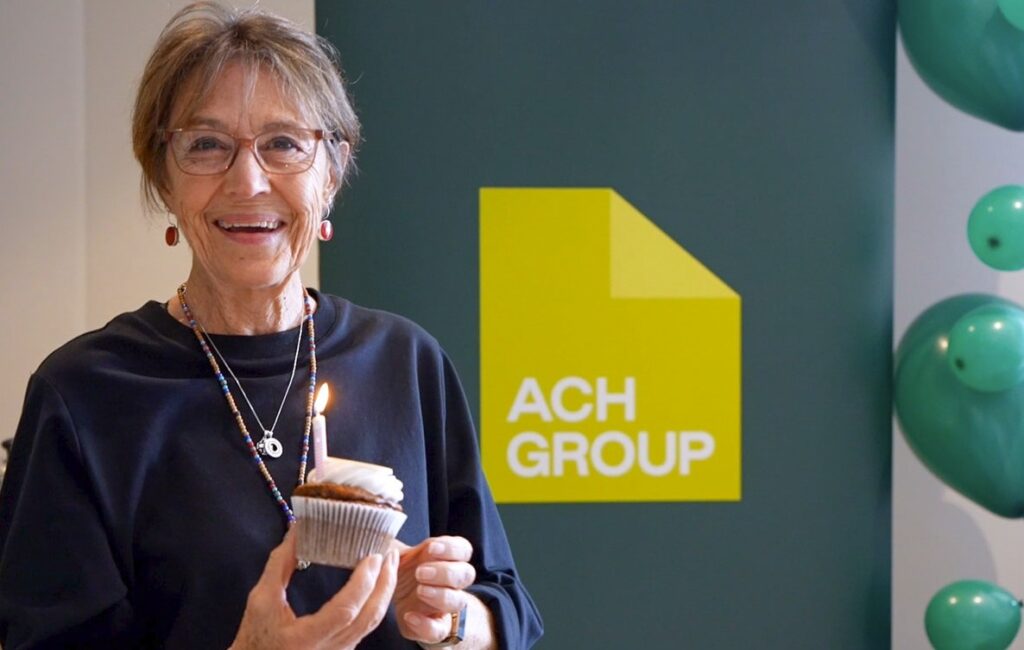Life, not labels
Brian Harris on purpose, ageism and the power of crossing generations
By any measure, Brian Harris has lived several lives: a country kid on a fruit block; a geologist in a downturn; a teacher who became the kind of principal students queued after the bell to shake his hand; an advocate who calls out bullying, racism and ageism; a Tai Chi instructor guiding flow; and a resident leader who believes communities thrive when people refuse the neatness of labels.
“I’ve always tried to build and maintain a strong sense of purpose,” Brian shares. “The labels change – teacher, principal, parent, volunteer – but the purpose can’t be allowed to fade.”
Born to a family of a returned serviceman who set up a fruit block property – “oranges, apricots, wine grapes, grapefruit, the lot” – Brian was expected to continue on the land. A late spring frost one year convinced him otherwise. He trained as a geologist before the mining slump of 1973 sent “several hundred of us” into new careers. “We became the taxi drivers and the teachers,” he jokes. Brian chose the classroom and stayed in education for 41 years.
He began in science and maths, quickly drawn to help students who didn’t fit the mould. Brian taught in primary and secondary schools, advised teachers, counselled teenagers, and eventually ran schools.
If you want to know the impact of that work, he says, picture the Friday he farewelled one school mid-year to start at another. “Every class had made a book of messages. The bell went and you’d expect the kids to fly out. Instead several hundred stayed – waiting to shake my hand, or get a hug. I knew then my approach had been accepted – be visible, be out in the yard, meet parents informally, teach in every classroom so your feedback to staff is grounded in reality.”
That ethic didn’t clock off at retirement.
“As a leader, you develop a finely tuned sense for bullying and racism. I still speak up when I see it. And I don’t hold grudges – if someone changes their behaviour, they’re welcome at every social event. The community has to be safe for everyone.”
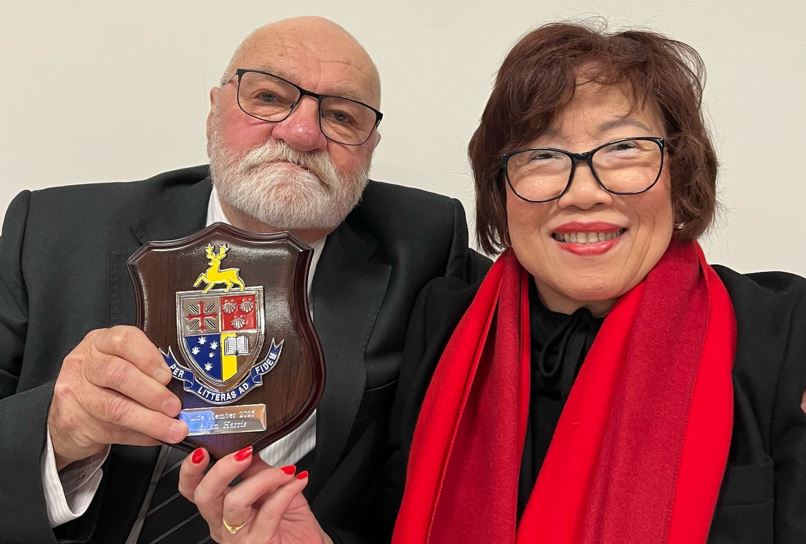
Life, not labels’
Ask Brian what “Life, Not Labels” means and the answer comes quickly.
“Labels stick but they don’t define. They’re useful shorthand – principal, retiree, client, carer – but they’re not a destiny.
When I left a busy working life, I needed to build a purpose that wasn’t tied to a title. That’s the work of later life.”
The obstacle, he says, can be ageism – often unexamined, often unchallenged. “From ‘silver tsunami’ to ‘burden on the economy’, the language is corrosive. It patronises, it excludes, it becomes policy. I’ve spoken with hundreds of older people and you can hear the toll in their voices.”
Brian tells the story of a 65-year-old neighbour who lodged 85 job applications after a lifetime of manual labour: “Not one reply. Not one acknowledgement.”
For Brian, tackling ageism begins with education and proximity.
“Younger isn’t better than older. Different isn’t lesser. You change minds with contact, with story, with shared work and purpose.”
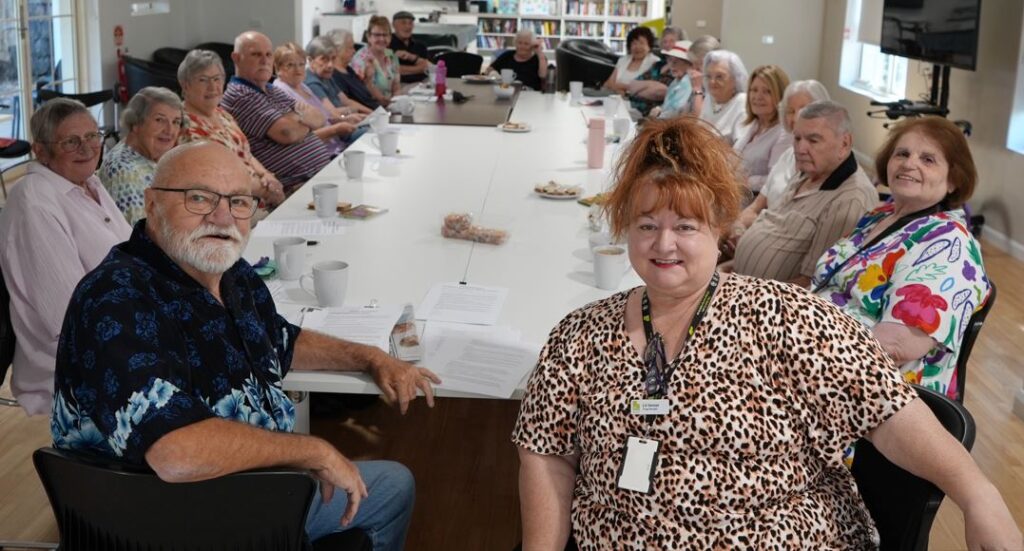
The Intergenerational Bridge
Out of that conviction, Brian designed and leads an intergenerational program linking older local residents and secondary students (Years 7–10) of Campbelltown.
He studied global research, partnered with the local council, community housing provider, UniSA researchers and ACH Group, while borrowing inspiration from the ABC’s Old People’s Home for Teenagers.
The activities are deceptively simple: low-stakes, face-to-face sessions that build trust and skill.
“In our first year I spoke to over 250 older people to recruit participants,” he says. “Ten per cent signed up.
That’s a win. More than half now want to keep working with young people.” He calls it “a kind of magic” created by careful design and human chemistry.
“We pair young people who haven’t yet found purpose with older people in danger of losing it. The connections do the work.”
It’s not a one-off. “Sustainability matters. It’s not enough to change one school and a handful of residents. We’re documenting what works, filming the reflections, building a model others can adopt.” He’s frank about why that matters: “Ageism softens when you shake hands with the person you’ve been labelling.”
Village life – and the case for better communication
Eight years ago, Brian and his wife downsized into the St Georges Court Retirement Village: single-level living, strong social networks, family still close by. “We’re social beings. We still see the kids and grandkids. As we age, more of our social life will happen inside the village, so the village has to work.”
Brian also reflects on what’s important.
“Communication is paramount,” he says, “For older people, words matter: font size, spacing, structure, tone. If I can use an AI tool to compile a two-page evidence-based checklist on communicating with older adults in an hour, we can embed those principles everywhere.”
He helped establish a residents’ committee – not to ‘rock the boat’, but to give people a voice and channel issues constructively – and he chairs conversations that are both warm and uncompromising.
“We work with the organisation, not against it.”
On duty of care, he believes a shift is coming as home care support is becoming more integrated with independent living. “If you’re providing multiple services and case management to someone who lives in your village, it’s harder to say there’s no duty of care. And that’s where the innovation of services is heading.”
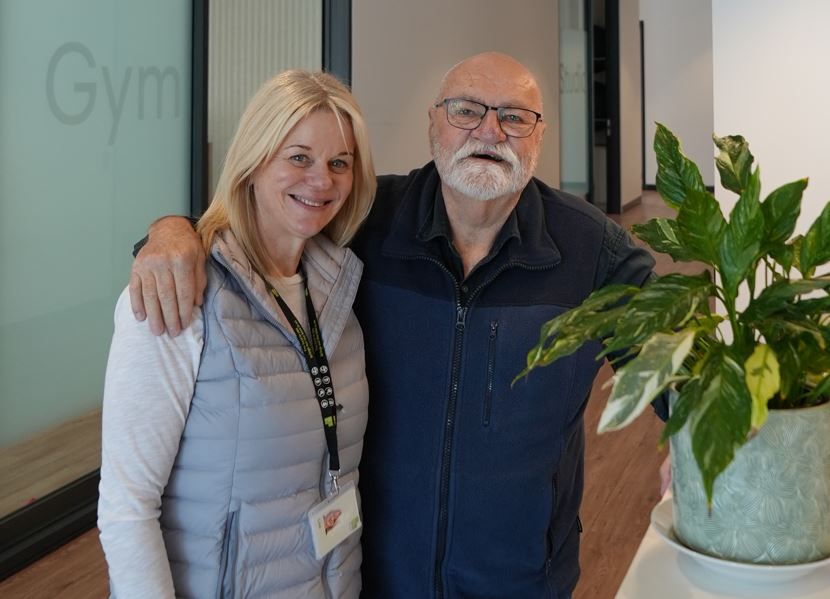
Health, strength and small routines
Living with a long-term chronic condition, Brian treats balance as his true north. “My program is simple: strengthen ankles, knees, hips – anything that reduces falls.”
“I get a great support from ACH Group at the Health Studio Rostrevor.”
In addition to this, most days he puts the plan into practice at a community gym. And there’s Tai Chi. “My wife and I have been practicing it for 30 years. We now run a group at St Georges Court – people come when they can. If you miss a week, it doesn’t matter.”
Navigating funding and assessments at the beginning of the journey hasn’t been straightforward.
“The first time, there were many lessons learnt. With support, later reassessments were better – I had ACH Group on my side as my chosen aged care provider – staff sat in on calls, helped with formulating the requirements.”
“That’s the difference good advocacy makes.”
“We attend social experiences, get some support with cleaning. The recent one-on-one information sessions at the Health Studio Rostrevor provided even more clarity, as we transition to the Support at Home Program.”
What advice would he give on staying well? “Move every day. Fight isolation. Volunteer – purpose is a health intervention. And encourage respect: in how we treat each other, in the care we receive, and in how we value ourselves.”
A multicultural life
Home for Brian is a table set for many. His wife is Chinese-Malaysian, three of their children were adopted from Indonesian orphanages. He travelled widely when young – “developed a strong affinity with Asia”- and his first trip abroad was to New Guinea, a tribute to his father’s wartime service.
The family is a mosaic that has sharpened his refusal to accept narrow categories.
“Identity is lived, not stamped.”
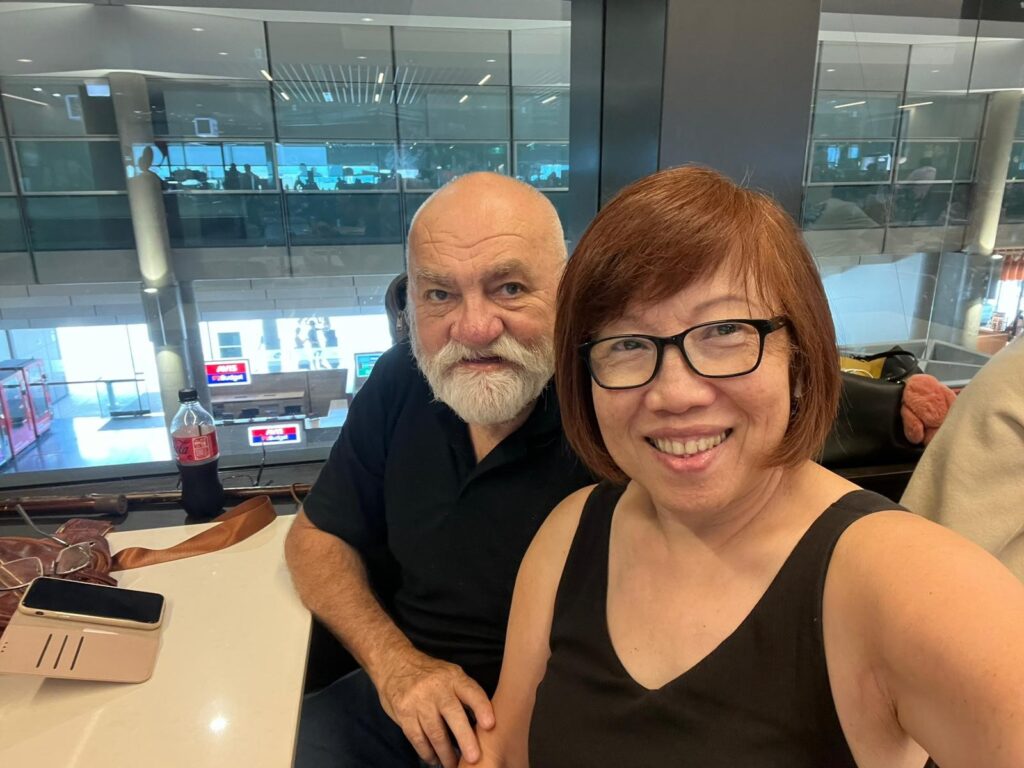
Opening minds, bridging generations
Brian bristles at the idea that later life is a quiet coda. “I strive to create a community that condones bullying or racism,” he says. “And I am keen to keep living in one that doesn’t underestimate its older residents.”
Communities heal and thrive when you open someone’s mind.
Looking ahead, Brian is determined to take the intergenerational program into its next chapter. After a successful first year, he is focused on consolidating the model and sharing it more widely.
“It’s too good an opportunity to miss,” Brian says.
“With new participants preparing to join, stronger partnerships with local councils and schools, and a growing body of research evidence, the program is poised not just to continue, but to inspire others.”
“We wouldn’t have done our job if this stayed in one community. The idea is to spread the word – so more schools, more aged care providers, and more communities can feel the magic of generations learning from each other.”
Your life, your home, your way – with our support
ACH Group is here to support older South Australians to stay at home longer, because home is where the comfort, familiarity, and connections are. Our comprehensive Home Care services are designed to adapt seamlessly to your unique needs, helping you maintain your independence and continue doing what you love.
With ACH Group, you can access:
- Allied Health Support: Physiotherapy, occupational therapy, podiatry, and more to support your health and mobility.
- Everyday Living Assistance: Help with tasks like cleaning, gardening, meal preparation, and transport.
- Personal Care: Dignified support with daily routines.
- Social Connections: Opportunities to stay active and engaged in your community.
Whether you’re exploring options for yourself or a loved one, our friendly team is here to answer your questions and guide you through the possibilities.
Discover how a little help can be a big help.
Request a call today.
